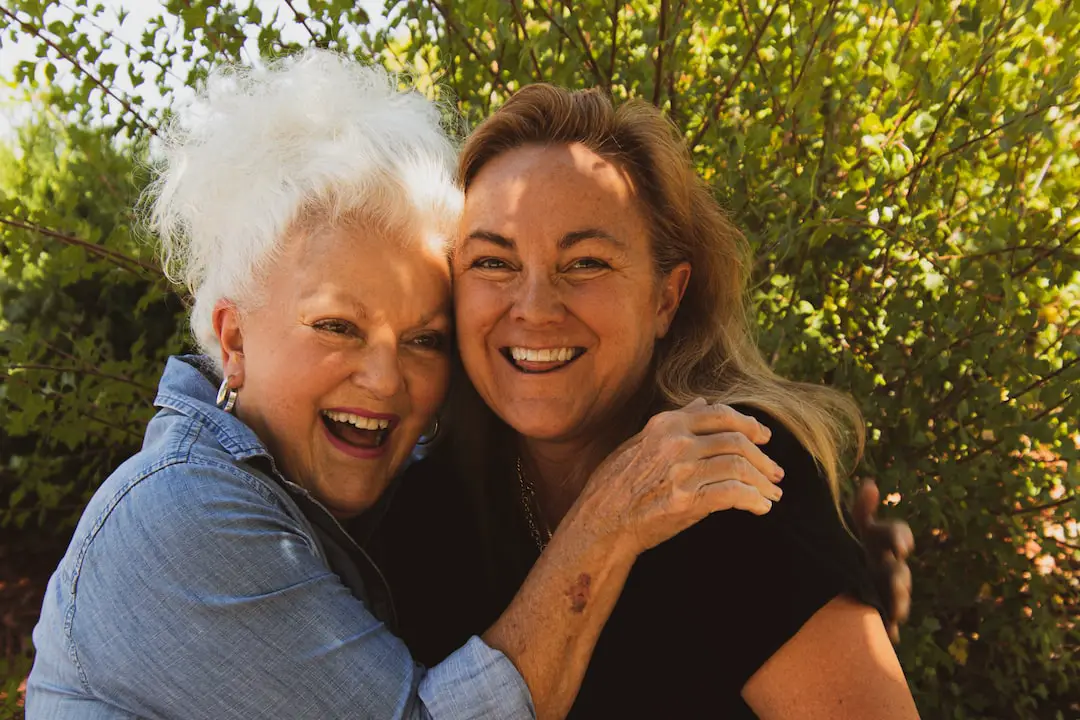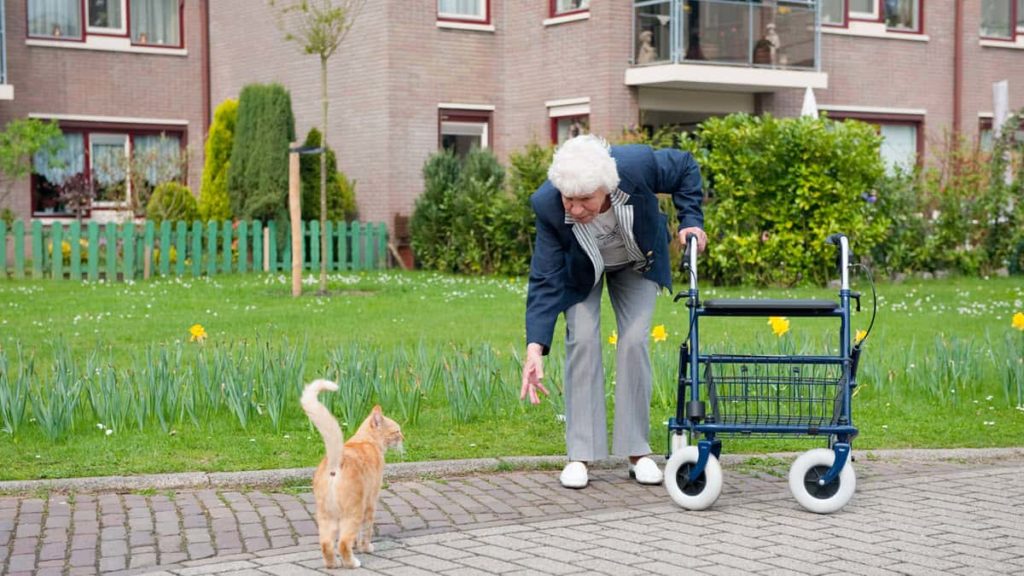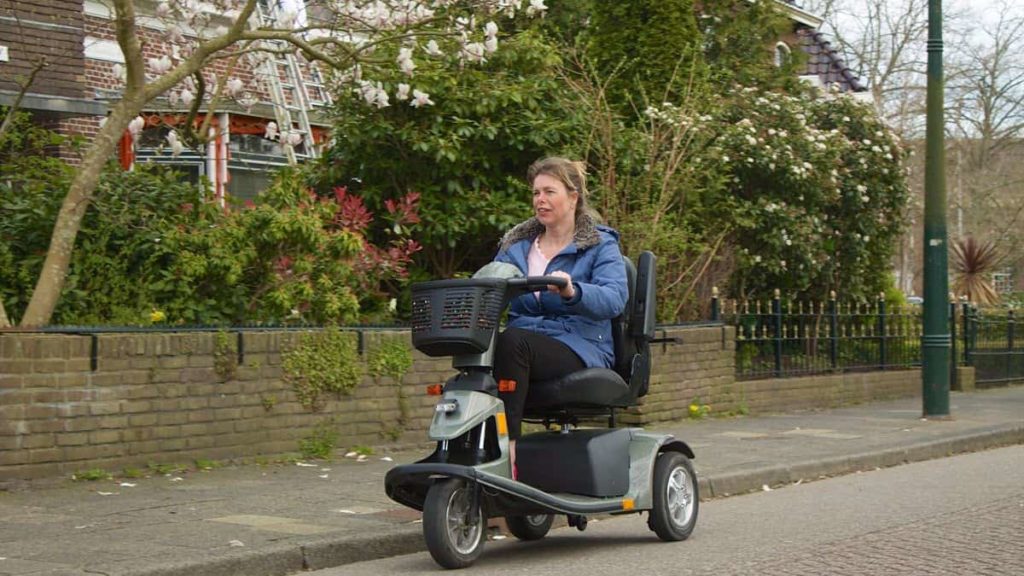Discover the Benefits of Living with Elderly Parents
Many families eventually face the question of how best to care for aging parents. It is a deeply personal decision. One possible option is having them move in with you, as it offers some incredible benefits.
Considering the various living arrangements and potential upsides makes you question if it is really that easy. This guide explores the surprising advantages, but also, the considerations of multi-generational living to give a fresh look at the many rewards available.
Let’s see how combining households impacts families for the better. Specifically when considering the emotional, practical, and lifestyle improvements available.
Table Of Contents:
- The Emotional Rewards
- Practical Perks of Intergenerational Living
- Enhanced Safety and Security
- Shared Wisdom Across Generations
- Lifestyle Improvements and Support
- Improved Quality of Life
- Potential Challenges to Address
- Factors in Decision Making
- FAQs about benefits of living with elderly parents
- Conclusion
The Emotional Rewards
Living with elderly parents strengthens the bonds between family members. Sharing daily life gives a level of closeness, and understanding, beyond sporadic visits.
Grandchildren get precious time with grandparents when living this closely together. They will build relationships many miss out on today with families often being scattered around the country and globe.
Cultivating Closer Relationships
When elderly parents move in, everyone has more family time together. Everyone is there for each other during the good and bad moments. Being involved in one another’s activities of everyday living builds that sense of togetherness.
Intergenerational households cultivate bonds through support. Especially between grandparents and grandchildren.
Family support is critical when loved ones start dealing with physical or cognitive limitations.
Companionship and Connection
Older adults who live alone often struggle with isolation and loneliness. But with a multi-generational home, these loved ones have consistent companionship and a built-in social network.
Simply having more activity in the home provides mental stimulation for senior family members. The back and forth banter provides important social interaction for mental well-being.
This consistent interaction can assist in delaying mental health decline.
Practical Perks of Intergenerational Living
Beyond the important emotional gains, having elderly parents living with you has other potential benefits. Living as one larger household allows more caregiving opportunities.
Shared finances are very helpful. Also it can help multiple generations live under one roof.
Simplified Caregiving
When older parents need support, family caregivers will love how much easier everything becomes when living together. Tasks get simplified, including quick errands like picking up prescriptions. Visits to doctor’s appointments won’t seem that daunting either.
Living in close proximity gives you eyes on how your loved ones are *really* doing. Recognizing problems early often prevents situations from magnifying down the line.
This can help prevent accidents from happening as you spot things that could cause issues.
Sharing Financial Responsibilities
Multi-generational living makes incredible financial sense. Pooling resources allows for stretching budgets farther, especially for things such as mortgage payments or rent and also, sharing utility expenses.
Some seniors contribute rent. This takes stress off the entire household’s budget.
The flipside, the younger generations can be the ones contributing to support older loved ones. Costs get reduced across the board when families combine these things and live under one roof.
Enhanced Safety and Security
When elderly parents move in, their adult children tend to worry less. The daily “surveillance” of how your aging loved ones are, means earlier awareness. This might prevent problems such as health scares or other emergencies.
With physical or mental decline, seniors become easier targets for scams and fraud. Protecting elders gets much simpler, and can even provide relief, for families living together.
The Comfort of Familiar Surroundings
Remaining at home is huge for older people with fading memories. Familiarity gives security when the mind begins to change.
Remaining at home, especially, comforts anyone dealing with a dementia journey. New environments tend to escalate these scary things, but at-home care reduces anxiety.
At-home care strengthens their familiarity with the house, photos, and comforting mementos. Living at home allows maintaining their own way of doing things, too.
Shared Wisdom Across Generations
Seniors share invaluable knowledge gathered throughout their many experiences. Stories and anecdotes transmit cultural traditions down through generations when loved ones all reside as one unit.
Grandchildren specifically learn and benefit with such wisdom and love. It can also lead to great family connections down the road.
This is a benefit that can not be overstated with teaching children valuable life lessons.
Preserving Family Traditions
One advantage that sometimes get lost amidst everything are family elders. Seniors become living historians.
When they move in, it’s a perfect situation for all the history they are privy too with family lineages and values. Grandparents provide a sense of history to younger family members.
Sharing childhood memories passes traditions. Families remain connected, and stronger, as their ancestry becomes known.
Lifestyle Improvements and Support
A multi-generational setting presents unique lifestyle advantages. Elderly family members frequently pitch in to help where able.
Having an extra set of eyes provides childcare. This support helps everyone involved.
The support the entire family provides allows for the easing of caregiving responsibilities.
There is flexibility on both sides. Grandparents share tasks from making dinner, picking the kids up from school and activities or watching after them.
Meanwhile adult children make sure the elders go to their doctor appointments or errands. Studies have found sharing things together and leading by example, can greatly assist your parents’ health and mood.
Modeling Healthy Habits
Caring for others gives purpose. With multi-generational arrangements, those who take care of others receive this fulfilling sense of meaning, but so can the care receivers too.
With the combined efforts for healthy meals to be shared as a family. Daily exercising improves mental outlooks.
This shared healthy living is a major factor. These are habits that are useful in teaching children good habits.
Improved Quality of Life
Quality of life receives boosts across various things. Including health monitoring, social interaction, and participating in stimulating activities.
All of these boost well-being for elderly residents. Shared nutritious meals bring people together to further that cause too.
These actions can assist the older adult to have a more positive outlook.
Creating Lasting Family Legacies
Combining generations offers everyone many wonderful advantages including family bonds and cherished memories. This leaves lasting legacies connecting past and future generations.
Families supporting each other strengthens families. Also it transmits those traditions that can be built on with current generations.
Potential Challenges to Address
Though having a parent live with you makes perfect sense, it would be dishonest to say challenges do not appear. There will always be friction when family members combine lives in one place.
Expect a loss of personal space and even reduced privacy. Adult children and seniors still want to have those boundaries respected while coexisting.
If you have a growing number of family members in your household, privacy may go down.
Adjusting Household Dynamics
When three, sometimes even four generations begin cohabitating, disagreements might easily occur from personal habits, the daily schedule and household routines. Setting these new household expectations minimizes future disagreements, even anger, from rising later.
Financial considerations can cause strained relationships, so have a gameplan in advance.
| Issue | Possible Solution |
|---|---|
| Personal Habits | Establish house rules and respect individual preferences. |
| Daily Schedule Conflicts | Create a shared calendar and communicate plans in advance. |
| Household Chores | Assign tasks and create a rotating schedule for shared responsibilities. |
Open Communication
Before even beginning on such living arrangements, frank discussions between family members makes everything more aligned. Then potential problems down the road get handled well before any issues can ever start.
It will help keep you from feeling overwhelmed later on.
Consider doing routine family meetings. These provide designated forums that maintain clear and consistent communication for sharing grievances, offering resolutions, and addressing any tensions between people before they build.
Finding Alternative Solutions
Living together is only sometimes appropriate, for all different reasons. For loved ones needing more care, sometimes more comprehensive assisted living communities make sense to explore.
There are also senior living options to explore, too. Such as senior living communities.
When searching for care, the key is facilities promoting holistic wellbeing with options such as recreational activities, transportation, and therapies. There is help with those pesky household tasks so there’s independence.
Factors in Decision Making
Thinking over things while inviting aging loved ones moves closer will not happen quickly. But honest discussions bring clarity that benefit both adult children and aging parents.
Evaluate, realistically, their capabilities, independence level, and any mental issues arising such as forgetfulness. Are cognitive conditions such as; Alzheimer’s or dementia already manifesting?
What is their potential decline trajectory? Family history provides another benchmark predicting potential issues going forward.
Honestly appraising all the financial dynamics gets tricky sometimes, though needed. Moving parents in strains family budgets with added expenses for things, especially groceries, additional medications that might arise, to medical equipment.
Are parents going to be contributing rent and household costs? Or, do things go the other way around with children subsidizing senior relatives and supporting the aging parent?
Will this require lifestyle sacrifices, and time wise from working long days for example, for taking the place as being their primary caregivers? There could also be a squeeze for a space large enough, where privacy starts feeling reduced, too.
Be realistic when setting and figuring out those expectations for everybody involved before anyone officially decides moving anywhere. By providing care you might save money, but make sure to keep track of your own personal care and possible burnout.
Having these important, but hard conversations with every key participant allows fully exploring multi-generational living, together. This provides you the necessary ability for balancing advantages versus potential downsides.
Families can be open. But there will likely always be hard choices for reaching shared decisions prioritizing everyone’s overall wellbeing first and foremost.
FAQs about benefits of living with elderly parents
What are some benefits of having your elderly parents live with you?
Some major advantages include: strengthened family relationships, shared financial burdens, with simplified caregiving, all while providing companionship. You also can save a great deal of money.
What is the 40-70 rule for aging parents?
This idea suggests that adult children have some discussions surrounding life decisions or their parent’s future before age 70. However, things accelerate fast at times requiring actions around age 40 when noticing signs pointing towards care needs.
Having conversations proactively prevents major difficulties.
What are the benefits of always living with your parents?
Some may never leave and always lived as combined households throughout adulthood for supporting loved ones long-term, sometimes. Others prioritize inter-generational bonds.
Combining all the shared living resources while keeping close always builds the family up, too. There are financial and childcare components, that could be involved as well.
Conclusion
Intergenerational households present something beyond what words really capture with deeper bonds and mutual support forming naturally, but even logistically. Of course, you will see there are certain difficulties popping-up now and then for even the most loving families.
Still, there’s the possibility with this living choice that it brings significant emotional, practical and also, lifestyle rewards for aging parents and adult children. This is especially true when choosing to make that shared home journey with all those combined life experiences to form something great.
Exploring fully those pros vs cons factors ensures successful transitions into households. Embracing the benefits of living with elderly parents, especially during this new exciting period for the families pursuing this lifestyle.
Jill believes that life just keeps getting better as she gets older. She believes everyone can live a full life of endless possibilities, with the right mindset, a healthy diet and with exercise.





